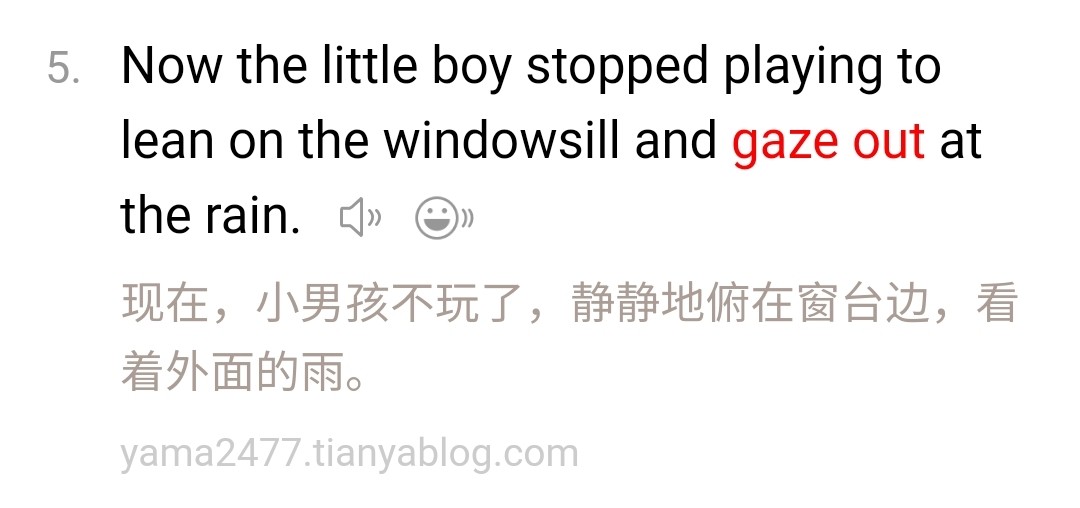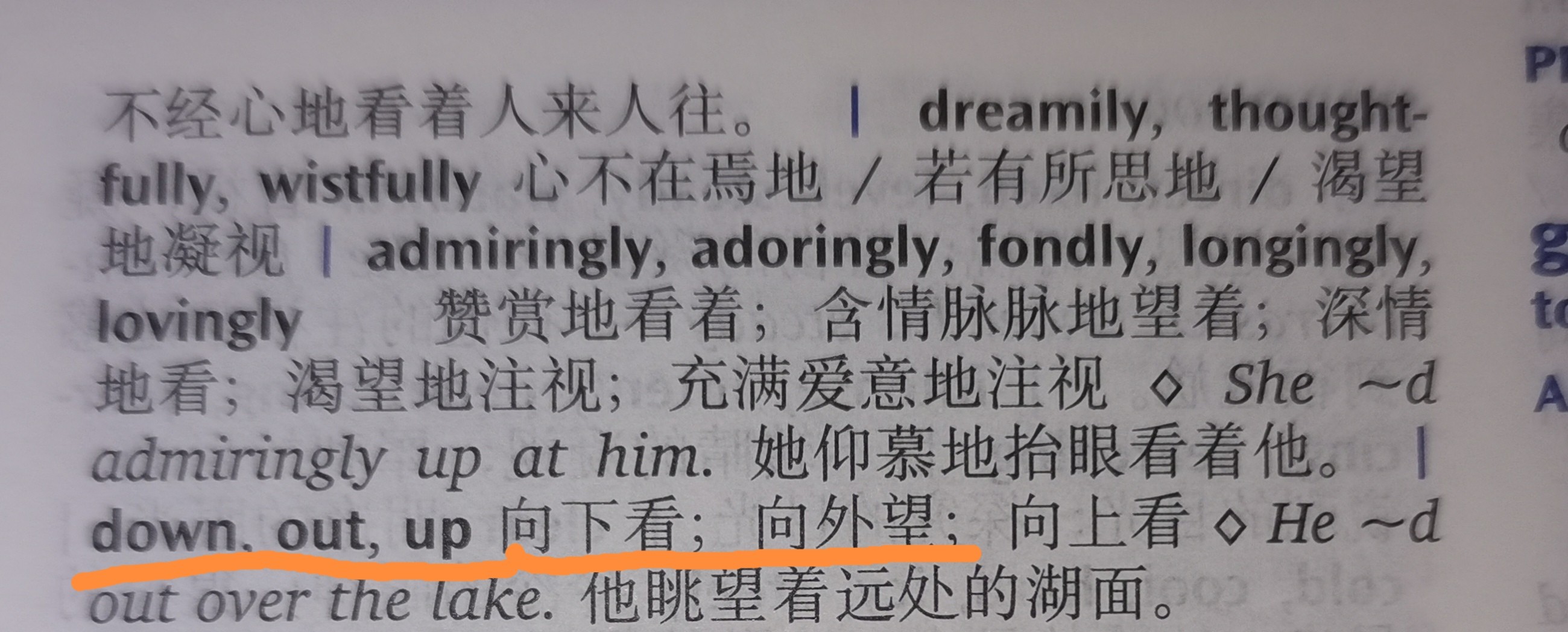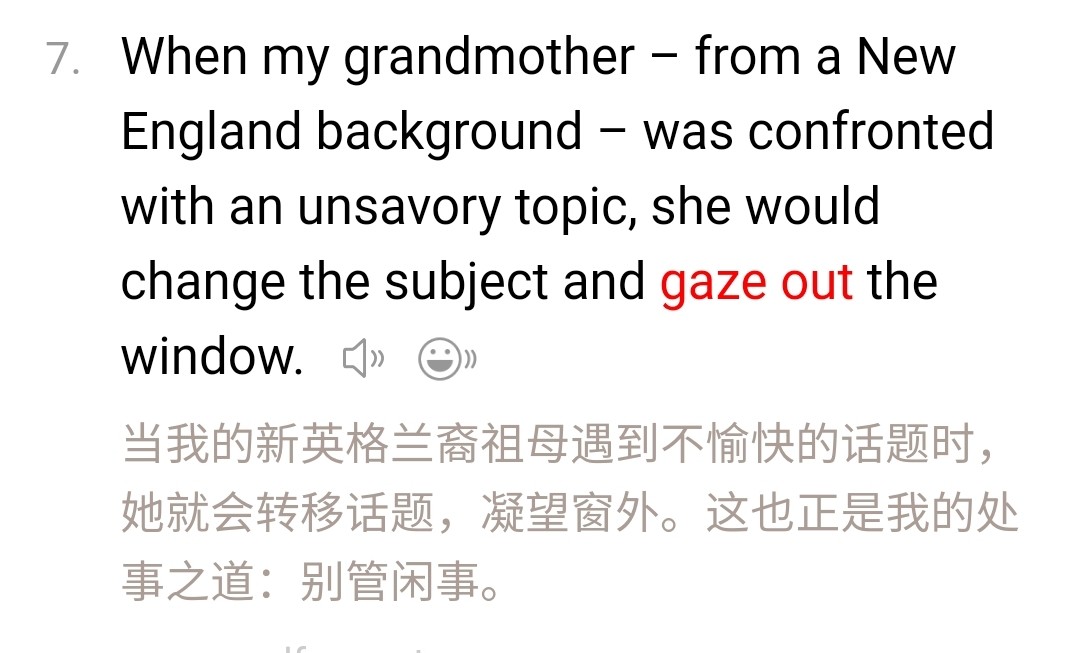1. gaze out at the rain
2. gaze out of the window
3. gaze out the window
我给网友详细讲解这三个词组,希望你能举一反三,不再迷惑。
1. gaze out at the rain
gaze 是不及物动词,不能直接跟宾语。如果跟宾语需要加一个起中介作用的介词 at。“凝视”不能漫无边际,需要有一个目标,因此,介词at就完成此任。比如说gaze at the picture。不能用 to,因为 to 表示方向。 at 才表示目标,所以表示“看”的目标都是用 at,如 look at, stare at, glare at, gaze at 等。又如 laugh at, shoot at 等都是目标。当然,如果你看的时候没有目标,只有方向,你也可以说:look to the east (朝东看)。问题中的词组为什么要加 out 呢?注意:out 是副词而不是介词。你在房内看外面下雨,需要有一个“朝外”的方向,这时,out 派上了用场:既要朝外看,又要看“雨”,这几层意思组合在一起,便成了:gaze out at the rain。
2. gaze out of the window
out of 是一个复合介词。它至少有8种意思或用法。
用在表示动态的语境中,out of意为“从……出来”。而且,多表示从有空间或体积的物体中出来,也可以从一个切口或侧面中出来。例如:
A smelly gas came out of the cracks. 一种带有臭味的气体从裂缝中冒了出来。
Mice ran out of the fields looking for places to hide. 老鼠从地里跑出来寻找地方藏身。
He came out of the back door. 他从后门出来。
本词组gaze out of the window,是说“从窗户朝外看”。
3. gaze out the window
这个词组,是第二个词组省略 of 的结果。请看下面的详细讲解,你自然就明白是怎么回事了。
在人教版初中英语《新目标》第三册有这样一个句子:Go out the front door and take a right.这里out等于out of。又如:He went out the door and diappeared in the dark. 他走出门口,消失在黑暗中。
out 用作介词通常在 door, gate, window 等词的前面,如 out the door, out the gate, out the window。—— 主要指“门口,窗口,开口” 等方位。
Don’t throw anything out the window. 不要把东西扔出窗外。
She ran out the gate. 她跑出了大门
Hey, look out the window! See the hot-air balloon? 嘿,看看窗外!看到热气球了吗?
She ran out the door and down the street. 她跑出门,沿街跑去。
Carlo went out the door first, the other three men very close to him. 卡罗首先走了出去, 另外三人紧跟在后面。
◆重要提示 以上例句 of 省略后,out 变成了介词或起到了介词的作用。语言在向简练的方向发展,在美国英语中,副词 out 用作介词已比较常见。然而,如果是 house, building,hall, room 等空间建筑物,仍然应该使用 out of。










